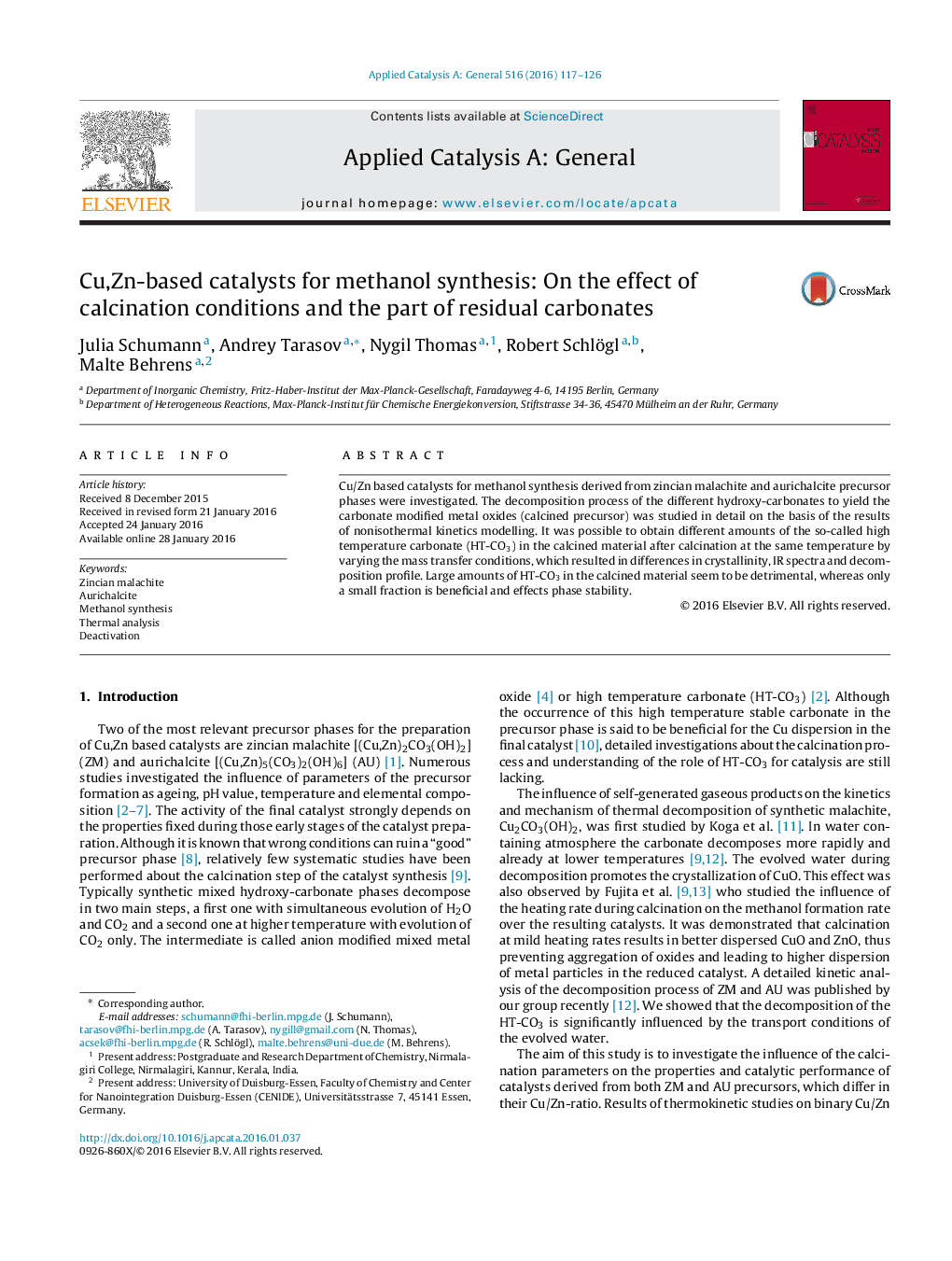| Article ID | Journal | Published Year | Pages | File Type |
|---|---|---|---|---|
| 38832 | Applied Catalysis A: General | 2016 | 10 Pages |
•The stability of Cu/ZnO catalysts in methanol synthesis is influenced by mass-transfer conditions of the calcination during catalyst preparation.•Good mass-transfer conditions lead to high residual carbonate content and low crystallinity of the oxides.•Depending on the precursor structure differently bound residual carbonates exist in the oxides.
Cu/Zn based catalysts for methanol synthesis derived from zincian malachite and aurichalcite precursor phases were investigated. The decomposition process of the different hydroxy-carbonates to yield the carbonate modified metal oxides (calcined precursor) was studied in detail on the basis of the results of nonisothermal kinetics modelling. It was possible to obtain different amounts of the so-called high temperature carbonate (HT-CO3) in the calcined material after calcination at the same temperature by varying the mass transfer conditions, which resulted in differences in crystallinity, IR spectra and decomposition profile. Large amounts of HT-CO3 in the calcined material seem to be detrimental, whereas only a small fraction is beneficial and effects phase stability.
Graphical abstractFigure optionsDownload full-size imageDownload high-quality image (233 K)Download as PowerPoint slide
